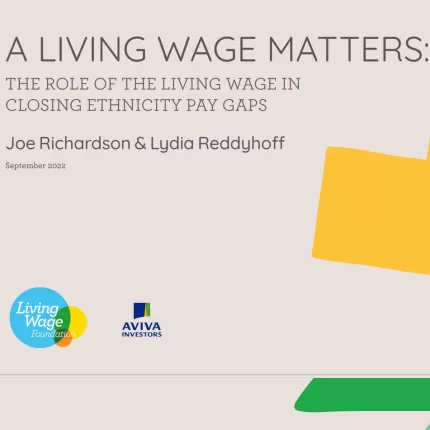A LIVING WAGE MATTERS:THE ROLE OF THE LIVING WAGE IN CLOSING ETHNICITY PAY GAPS
The pandemic painfully revealed the racialised imbalances in the UK, with minority ethnic workers disproportionately exposed to the health and economic risks posed by Covid-19. This includes experiencing Covid-19 more severely with more adverse health outcomes, and suffering a greater average earnings loss. That being said, ethnicity pay gaps did not originate in the pandemic – far from it. Consistent evidence has shown that on average minority ethnic employees in Britain have lower levels of pay than white workers – and that this has been a perennial issue within the UK labour market. The situation is set to worsen with the cost-of-living
crisis that is likely to ‘devastate’ the poorest families, which in itself also has a disproportionately racialised dynamic.
This report explores the relationship between different minority ethnic groups and the real Living Wage. We find significant gaps between white and most minority ethnic workers when it comes to earning the real Living Wage, although the picture is not clear-cut. Overall, we conclude that paying the real Living Wage makes an important contribution to uplifting the wages of low paid workers and that this significantly benefits minority ethnic workers, who are over-represented in low paid roles.

